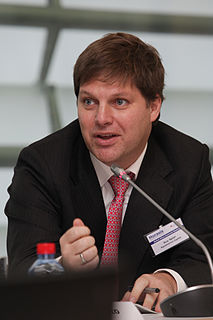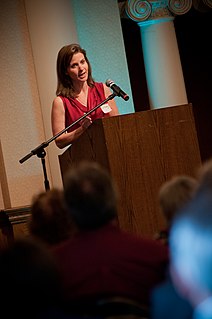A Quote by Haruki Murakami
I can't build a simple shelf. I have no idea how to change an oil filter on a car. I can't even stick a stamp on an envelope straight. And I'm always dialling the wrong number. But I have come up with a few original cocktails that people seem to like.
Related Quotes
But I think it’s important to discuss just how easy it is for any of us to get caught up in things that might seem unthinkable—to get sucked into the wrong environment and make moral compromises that can tarnish us terribly. We like to think that we change our environment, but the truth is that it changes us. So we have to be extraordinarily careful to choose the right environment—to work with, and even socialize with, the right people. Ideally, we should stick close to people who are better than us so that we can become more like them.
I wonder where you got that idea from? I mean, the idea that it's feeble to change your mind once it's made up. That's a wrong idea, you know. Make up your mind about things, by all means - but if something happens to show that you are wrong, then it is feeble not to change your mind, Elizabeth. Only the strongest people have the pluck to change their minds, and say so, if they see they have been wrong in their ideas.
Our investments continue to be few in number and simple in concept: The truly big investment idea can usually be explained in a short paragraph. We like a business with enduring competitive advantages that is run by able and owner-oriented people. When these attributes exist, and when we can make purchases at sensible prices, it is hard to go wrong (a challenge we periodically manage to overcome).
When I created Chipotle in 1993, I had a very simple idea: Offer a simple menu of great food prepared fresh each day, using many of the same cooking techniques as gourmet restaurants. Then serve the food quickly, in a cool atmosphere. It was food that I wanted, and thought others would like too. We've never strayed from that original idea. The critics raved and customers began lining up at my tiny burrito joint. Since then, we've opened a few more.
In the aftermath of 9/11 and in the build-up to the invasion of Iraq, few questioned the idea that the United States was likely to be the extant superpower for several decades to come. Few anticipated how quickly the neoconservative project would run into the sands - or that China would rise so quickly.
The way Fatboy Slim layers motifs is the same as 18th-century baroque counterpoint. You have an idea, then you have an answer to the idea in another voice, then you have a counter idea accompanying the original idea, and you build up your texture like that. I'm really into Kruder and Dorfmeister at the moment, and they do the same thing.
I was lucky enough to build on the work of a number of people who had already run laps around this theory-building track. The original classification scheme, years ago, distinguished radical from incremental change. The theory said that established firms managed incremental change well, but would be expected to founder when their industry encountered a radical change.
I feel like with Indy cars, you can just show up - if you are equipped to build and make a nice car, then you could be competitive. But in NASCAR I don't see that even being possible for someone to just show up with a car. There's too much evolution of the tricks and bells and whistles and all the things it takes to be fast in stock-car racing that you wouldn't know.
The real truth - like anything, you have an idea about something you might write and it changes. People reflect on it or you get other ideas and maybe your original idea is radically different than how it ends up being. It's not a theorem. You don't sit down and prove something. You start with an initial idea and it grows and grows. The math of the narrative changes. In some ways your original document and what the film ends up being are quite different.





































